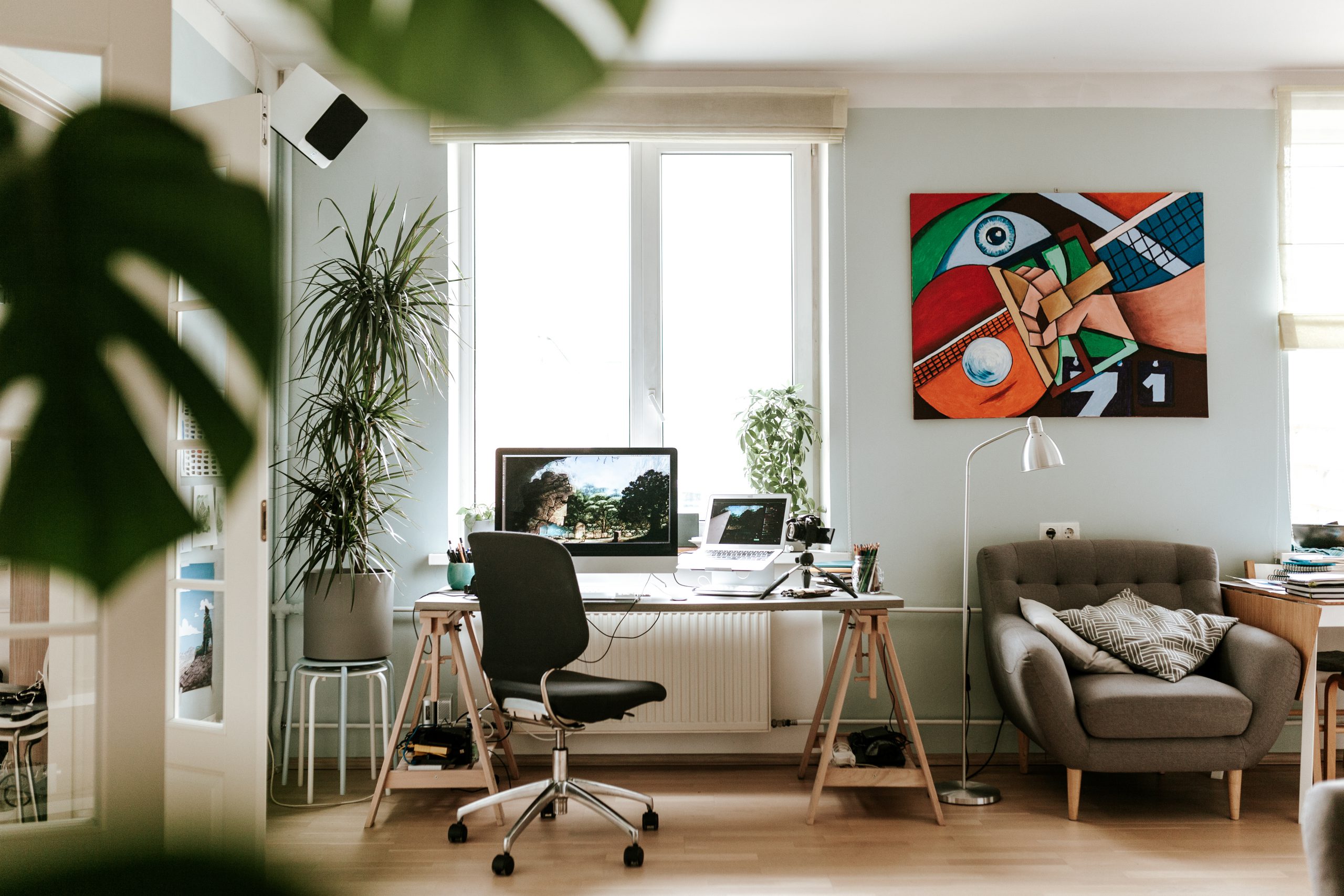
Working from home is now becoming a permanent part of many professional lives. Many companies have scaled back on commercial rents and telling employees they’ll not be returning to their offices and cubicles – or limiting their return to the office obligations.
Many of us are now expected to use their home as their office whether we like it or not, and embrace technologies such as video conferencing.
While the rush-hour that would book-end our working days won’t be missed, careful thought needs to be given to what all this means for our home life.
To successfully transition to this work-from-home phenomenon long term, you need to identify space in your home that’s far from the hustle and bustle of family life and can still be used as a workspace.
Also, you want to be able to shut your door on work at the end of the day. If you’re working at the kitchen or dining room table, it will be a continual presence in your family life – and that’s not healthy.
As Covid drags on, many buyers are asking about workspaces in homes that are on the market. This hasn’t become as important as a good bathroom, kitchen or whether a home has three or four bedrooms, but it’s definitely rising on most priority lists.
If you’re thinking of selling in the near future, then creating a home-office will give you a distinct advantage over similar properties for sale in your area. Here are some tips on how to set up a great workspace.
- Find privacy or a quiet corner – You don’t need an entire room, or a city skyline view, to create a home/office. But it’s best to choose a space away from the busiest areas of your home.
- Crank the Wi-Fi – You’ll need good internet access to cope with the demands of work. If you can’t run a CAT5 or CAT6 cable to your desk, use Wi-Fi extenders to deliver the data speeds you need.
- Invest in a good desk and chair – Don’t short change yourself on these. Your posture and wellbeing are at stake – and that’s no exaggeration. If your office is offering an ergonomic audit of your set-up, invite them in. Some employers will pay for what you need. Remember, you’ll likely be spending more than 30 hours a week at your desk.
- Light bulb moment – Lighting is crucial to productivity. Avoid natural light that throws glare onto your computer screen. Use window blinds to combat this challenge and add soft desk lighting.
- Storage solutions – It is essential that you can keep your work papers safe from children and maybe your own desktop chaos. If you don’t keep everything reasonably neat, you’ll soon grow tired of your new home-office.
- Order office supplies – Don’t trash your concentration and productivity by making endless trips to the store for pens, paper and printer ink. Stock up and avoid this distraction.
- Consider a second phone – If you’re finding it difficult to achieve a work/life balance, get a second phone – one for your private life and the other for work.
